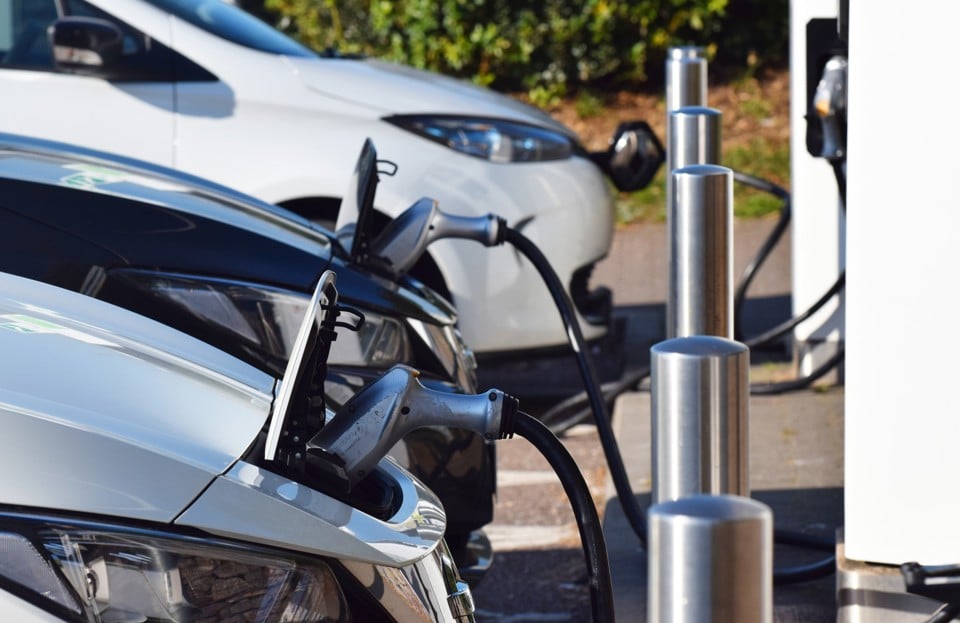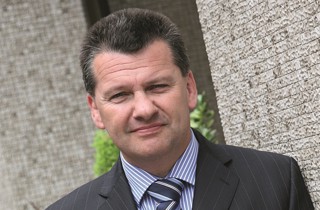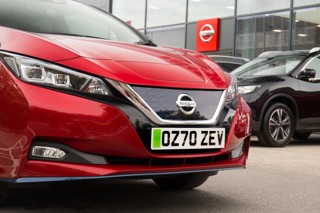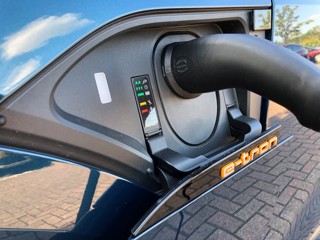Growing interest in electric vehicles (EV) suggests that motorists may be gearing up for Government’s anticipated announcement of a 2030 ban on new petrol and diesel car sales.
Ahead of a speech by UK Prime Minister Boris Johnson tomorrow (November 12), which is expected to outline plans to bring forward the current 2035, online marketing specialist CarGurus said that 75% of EV enquiries seen on its platform over the last 12 months occurred between July and September of this year.
In a statement issued this morning, it said that the rise in interest in EVs suggested that “British motorists may well be ready for wider electrification after all, well ahead of an anticipated ban”.
The Society of Motor Manufacturers and Traders (SMMT) new car registrations data for October showed that overall EV market share was 12.1%, up from just 4.4% year-on-year.
Chris Knapman, editor at www.CarGurus.co.uk, said: "Banning the sale of all new petrol and diesel vehicles from 2030 will certainly present a challenge to the car industry.
“But it is without doubt that consumer interest in electric vehicles is increasing, with CarGurus data around EV inventory and enquiries mirroring the dramatic rise in battery electric vehicle registrations.
“London is displaying the most interest in EVs by quite some way, which is most likely a result of electric cars being exempt from the Congestion Charge, as well as the sheer number of chargers available to use.
“Across the UK, the continued investment in infrastructure combined with the increasing numbers of electric cars arriving on the new and used markets mean we are almost certain to see more drivers making the switch.”
Charging infrastructure
EV charge point mapping and payment provider, Zap-Map, revealed that EV charging infrastructure has significantly increased during the course of 2020, despite the turmoil caused by the COVID-19 coronavirus pandemic.
The number of EV charge point devices is already more than 15% higher than in 2019, at 20,072 with many of these being newer rapid and ultra-rapid chargers, it said.
The number of locations of EV chargers has also increased to 12,648, over 2,000 more so far this year than 2019. Every month more than 500 charge points, of which about 100 are rapid chargers, are being added to Zap-Map.
Melanie Shufflebotham, co-founder of Zap-Map, said: “At the start of this year we predicted that 2020 would be break-through year for Electric Vehicles.
“Despite the pandemic, consumer demand for EVs has continued to build.
“In a pretty harrowing year for motor dealers, this represents some welcome good news for both the industry and the environment.
“We anticipate that that demand will only increase and, as the EV range expands across various manufacturers, Zap-Map has committed to developing tools for dealers to use to support the sale of EV and overcome any consumer concerns about owning an EV.”
Demand disparity
CarGurus analysis highlights disparities in EV demand across the UK, however, showing which regions represent the biggest hotspots for interest.
Greater London is the EV hotspot capital of the UK, accounting for nearly 40% of EV enquiries.
CarGurus said that the area around England’s capital had nearly four times as much interest in EVs than the East of England, which was the region with the next highest level of interest in EVs, while Scotland rounded off the top three.
Motorists in Northern Ireland might need some more convincing ahead of the 2030 petrol and diesel ban, coming last in the rankings for EV interest, well behind the East Midlands and Yorkshire and the Humber in the bottom three.
The SMMT has suggested that Brexit could prove a barrier to Government's plans to ban ban petrol and diesel powered new cars as it drive forward with its Road to Zero drive to cut CO2 emissions.
Last month it reported that a 'no-deal Brexit' would trigger a £2,800 uplift in EV prices which would effectively cancel out UK’s plug-in car grant (PCIG) and risked reducing increased BEV demand next year by at least 20%.
 SMMT chief executive, Mike Hawes, said: “Just as the automotive industry is accelerating the introduction of the latest electrified vehicles, it faces the double whammy of a coronavirus second wave and the possibility of leaving the EU without a deal.
SMMT chief executive, Mike Hawes, said: “Just as the automotive industry is accelerating the introduction of the latest electrified vehicles, it faces the double whammy of a coronavirus second wave and the possibility of leaving the EU without a deal.
“To secure a truly sustainable future, we need our government to underpin industry’s investment in electric vehicle technology by pursuing an ambitious trade deal that is free from tariffs, recognises the importance of batteries in future vehicle production and ensures consumers have choice in accessing the latest zero emission models.
The SMMT had previously reported - following analysis compiled with the help of Frost & Sullivan - that spending of at least £16.7bn was required to get the UK’s public charging network ready for mass EV market, with 507 new charge points needed every day to 2035 to drive buyer confidence.




















Login to comment
Comments
No comments have been made yet.